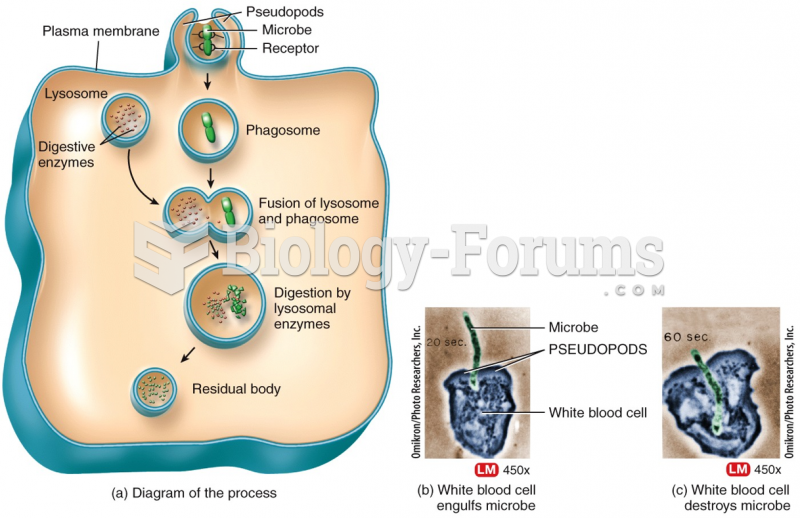|
|
|
It is difficult to obtain enough calcium without consuming milk or other dairy foods.
Always store hazardous household chemicals in their original containers out of reach of children. These include bleach, paint, strippers and products containing turpentine, garden chemicals, oven cleaners, fondue fuels, nail polish, and nail polish remover.
There are over 65,000 known species of protozoa. About 10,000 species are parasitic.
When blood is exposed to air, it clots. Heparin allows the blood to come in direct contact with air without clotting.
Signs of depression include feeling sad most of the time for 2 weeks or longer; loss of interest in things normally enjoyed; lack of energy; sleep and appetite disturbances; weight changes; feelings of hopelessness, helplessness, or worthlessness; an inability to make decisions; and thoughts of death and suicide.







